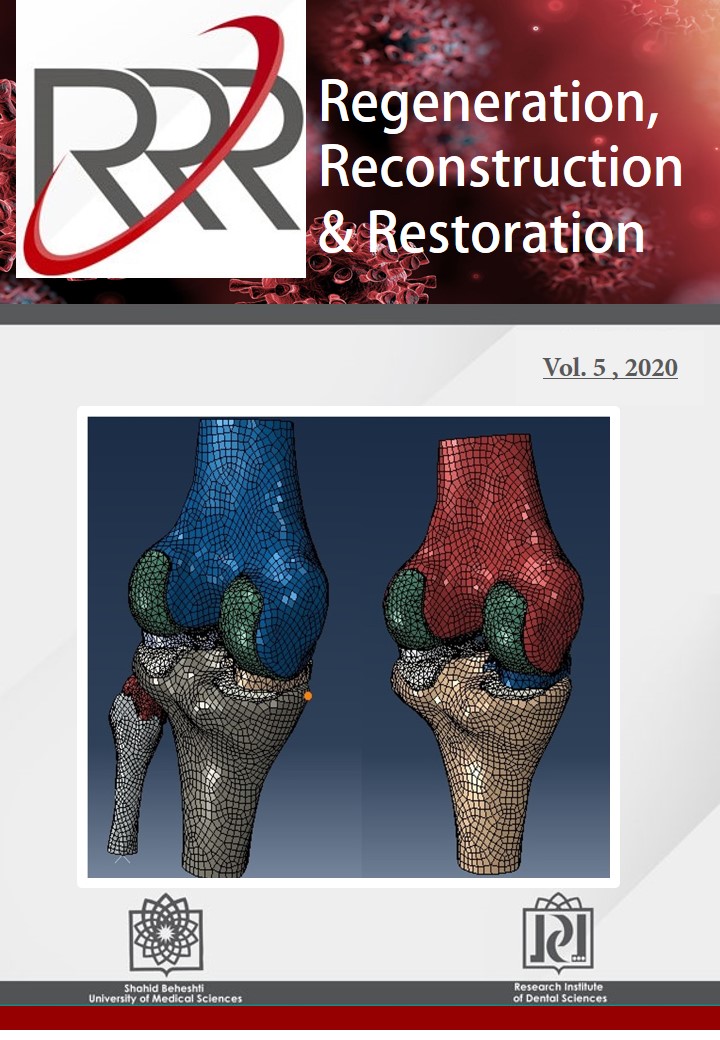Effect of Curcumin on Odontogenic/Osteogenic Differentiation of Dental Pulp Stem Cells
Journal of "Regeneration, Reconstruction & Restoration" (Triple R),
Vol. 5 (2020),
24 March 2020
,
Page e13
https://doi.org/10.22037/rrr.v5i.31127
Abstract
Introduction: Stem cells have gained great attention in tissue engineering and curcumin is a natural phenolic product that had showed some positive effects on these cells. The aim of this study was to evaluate the effect of curcumin on the differentiation of human dental pulp stem cells (hDPSCs).
Materials and Methods: In this experimental study, hDPSCs were isolated from human third molars and treated without and with different concentrations (5, 10 and 15 µM) of curcumin and dimethyl sulfoxide (DMSO) as solvent for curcumin. Proliferation of the cells was measured by methyl-thiazol-tetrazolium (MTT) assay. Osteo/odntogenesis were assessed by alkaline phosphatase (ALP) assay and alizarin red staining. The collected data were subjected to statistical analysis (two-way ANOVA and Bonferroni correction) at a significant level of 0.05 by using SPSS software version 21.
Results: MTT assay showed that addition of curcumin at 5μM concentration to the medium had no significant effect on cell proliferation compared with control group. Higher concentrations significantly inhibited cell proliferation at days 2 and 14. ALP showed reduced cell activity at all concentrations compared with control group. However, curcumin at 5μm concentration increased the ALP activity compared with DMSO group. Alizarin red staining showed that curcumin had no effect on mineralization.
Conclusion: Curcumin did not induce osteo/odontogenic differentiation of hDPSCs. However, low concentration of curcumin was not toxic and increased the ALP activity of the cells compared with the DMSO group.
- curcumin
- mesenchymal stem cells
- odontogenesis
- osteogenesis
How to Cite
- Abstract Viewed: 231 times
- PDF Downloaded: 126 times
